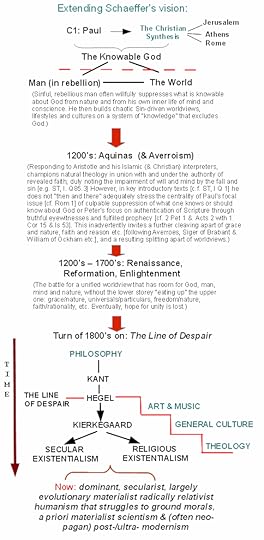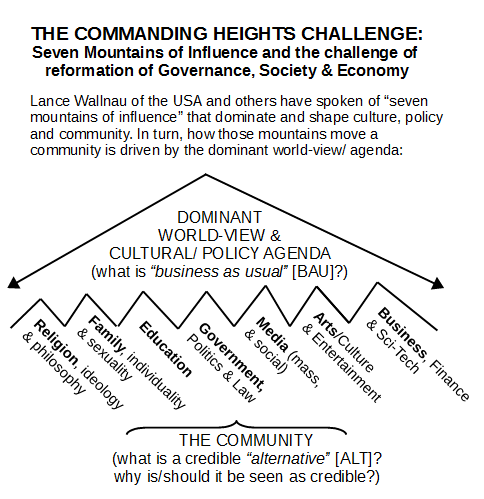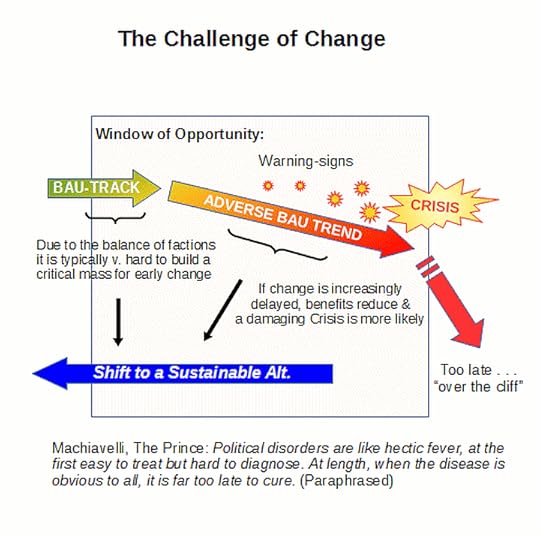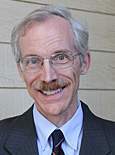Michael J. Behe's Blog, page 448
August 1, 2019
Claim: Turtle embryos can choose their sex
In the sense of deciding which part of the egg to spend time in. But not everyone is convinced:
Developing reptile embryos that have temperature-dependent sex determination were long thought to passively accept their weather-based fate. But now, new research suggests that at least in M. reevesii, embryos can move around to find slightly cooler or warmer regions within their eggs, and thereby have some control over the sex they develop into. The authors propose that this ability may help offset drastic, population-wide shifts in sex ratios that are occurring due to climate change. The findings appear today (August 1) in Current Biology.
“I find it fascinating that [embryonic movements] may be an important contributor to the production of equal numbers of males and females at intermediate conditions in the wild,” writes evolutionary biologist Nicole Valenzuela of Iowa State University to The Scientist in an email. “It is quite a novel finding.” …
Fredric Janzen, an evolutionary biologist at Iowa State University, is yet to be convinced that embryos can shift around the egg and influence their sex. As he and others have argued previously, the idea is implausible for several reasons. “In a real nest, they’ve only moved basically a millimeter—a millimeter in a thirty-four-millimeter egg . . . there’s no thermal gradient in a millimeter,” he explains. “And really, there’s no way for them to move because the yolk sac is large, it’s surrounded by an impenetrable membrane—so it’s not like these things can just swim.
Katarina Zimmer, “Turtle Embryos May Have a Say in Deciding Their Sex” at The Scientist
No claim is being made that the turtles in the eggs are actually weighing the options, just that their individual pre-hatching movements would make a difference. Some have made such claims though:
… there is the weird habit of attributing impossible thought processes to animals who are supposedly thinking in Darwinian terms about how to ensure the survival of their selfish genes. For example, the mares who supposedly cause an abortion because they perceive that the stallion will not accept another stallion’s offspring. The mare presumably knows all this and can act on it—even though she cannot otherwise perform the simplest reasoning tasks.
And there’s the Darwinbird of pop science who “is optimising the likelihood of her offspring mating and rearing young (so ensuring the continuation of her genes into future generations)” by controlling the sex of her offspring: “There is some evidence she can bias the sex ratio by controlling hormones, particularly progesterone.”
So we are really to believe that a bird who is too stupid to evade a giant wind turbine is planning her offspring’s future? Does “science-based thinking” really require that of us?
In real life, what’s fascinating is how complex it all turns out to be, yet there always seem to be enough turtles of each sex.
Follow UD News at Twitter!
Copyright © 2019 Uncommon Descent . This Feed is for personal non-commercial use only. If you are not reading this material in your news aggregator, the site you are looking at is guilty of copyright infringement UNLESS EXPLICIT PERMISSION OTHERWISE HAS BEEN GIVEN. Please contact legal@uncommondescent.com so we can take legal action immediately.
Plugin by Taragana
The College Fix LISTENS TO David Gelernter on Darwin!
We mostly know The College Fix as one of those intellectual freedom groups who help profs and students who have been out-windowed or smashed in some way by the raging Woke. Well, Gelernter still teaches at Yale and if the Unabomber didn’t stop him, maybe Darwin’s mob won’t either. Despite the fact that he hasthis to say about them:
Gelernter said an ideological bent has taken over the field of science. There are good scientists doing good work, “but we have a cautionary tale in what happened to our English departments and our history departments could happen to us, God forbid,” he said.
Gelernter said he likes many of his colleagues at Yale, that they are his friends, but when he looks at “their intellectual behavior, what they have published — and much more importantly what they tell their students — Darwinism has indeed passed beyond a scientific argument as far as they are concerned. You take your life in your hands to challenge it intellectually. They will destroy you if you challenge it.”
“Now, I haven’t been destroyed, I am not a biologist, and I don’t claim to be an authority on this topic,” Gelernter added, “but what I have seen in their behavior intellectually and at colleges across the West is nothing approaching free speech on this topic. It’s a bitter, fundamental, angry, outraged rejection [of intelligent design], which comes nowhere near scientific or intellectual discussion. I’ve seen that happen again and again.”
Gelernter acknowledges “I am attacking their religion and I don’t blame them for being all head up, it is a big issue for them.”
Jennifer Kabbany, “Famed Yale computer science professor quits believing Darwin’s theories” at The College Fix
It’s almost as though people are “getting it” that Darwinism now functions as an intolerant secular religion. Evolution rolls on oblivious but, here and there, heads are getting cracked over the differences between what really happens and what Darwinians insist must happen.
It’s also an odd feeling when people like Gelernter are actually listened to. It’s almost as if there are intelligent people out there, not just groupies and trolls.
Hat tip: Ken Francis, co-author with Theodore Dalrymple of The Terror of Existence: From Ecclesiastes to Theatre of the Absurd
See also: Remember David Gelernter On Darwin’s Thugs? He’s Hit The Big Time, Sort Of. “Fiercely Anti-Intellectual”
and
Mathematicians challenge Darwinian evolution
Follow UD News at Twitter!
Copyright © 2019 Uncommon Descent . This Feed is for personal non-commercial use only. If you are not reading this material in your news aggregator, the site you are looking at is guilty of copyright infringement UNLESS EXPLICIT PERMISSION OTHERWISE HAS BEEN GIVEN. Please contact legal@uncommondescent.com so we can take legal action immediately.
Plugin by Taragana
Breaking out of our present peril (and, whose report should we believe?)
How can we break out of our present peril, as a civilisation?
Let’s pause and hear Francis Schaeffer on the subject:
A key aspect of the challenge, is that Democracies, from the days of Plato, are known to be prone to decay into misrule and marches of folly driven by manipulated mobs.
Hence, the concept, demagogue:
demagogue or demagog
n
1. (Government, Politics & Diplomacy) a political agitator who appeals with crude oratory to the prejudice and passions of the mob
2. (Government, Politics & Diplomacy) (esp in the ancient world) any popular political leader or orator
[C17: from Greek d?mag?gos people’s leader, from d?mos people + agein to lead]
Collins English Dictionary – Complete and Unabridged, 12th Edition 2014 © HarperCollins Publishers 1991, 1994, 1998, 2000, 2003, 2006, 2007, 2009, 2011, 2014
Of course, often the demagogue is part of a stable of bought and paid
for actors, backed by some Mr Moneybags behind the scenes.
Sometimes, there are far more sinister networks with mostly hidden, escalating, ruinous agendas. Just to list:
mobs or even militias on the streets, crudely populist agitators, more cultured literary voices and/or literal actors and celebrities with popular followings, pundits, academics and other high prestige experts, think-tanks, public relations strategists and agencies, marketers, agit-prop strategists, media houses, parties and more.
If we have not drawn these frightening lessons from the history of C20, with both the Communists/Bolsheviks and their kissing-cousins the Nazis/Fascists, we have yet again failed to learn lessons of sound history that were paid for in literal rivers of blood.
Maybe, we need to read Canetti’s Crowds and Power.
Perhaps some thoughts on the heirs of both, today’s Alinskyite cultural marxists, would be advisable.
Now, too, where there is a howling, menacing mob on the streets or in your workplace or online pushing a powerful and destructive attack-agenda, you can bet your bottom dollar that somewhere, there is a paymaster backed by serious money. Which, can even be the lead bureaucrats of the increasingly powerful state apparatus, the so-called deep state and their allies in the intelligentsia who are bought with grant money.
(This, BTW is my read of the ongoing mid-game play-out in North America [no, the end-game of the current, battle- of- attrition- by- mob- and- lawfare- driven- personal- ruin cultural civil war is not yet], i/l/o my observations on trends with the increasingly obviously utterly unstable UK. Three PM’s in four or so years is not a good sign.)
Ac 27 has in it a raft of sobering lessons we have yet to seriously attend to, draw lessons from and absorb in the Churches, much less the wider culture. And so does a lot more of what now seem to be hidden, derided corners of willfully silenced and forgotten history of our common civilisation. One, once rightfully called Christendom . . . with all its sins, struggles and blessings; but which, having willfully and angrily cut itself off from its vital roots through the oppression thesis, now begins to decay disgustingly as it withers.
It is now very hard to find a decent survey history of our civilisation, something that used to be commonly taught in colleges and schools; a bad sign. [I shrug, then suggest here as an obviously flawed outline.]
So, yes, of all people the notorious Vox Day [NOT generally endorsed but he has drawn up a useful survival guide for the mobbed], in his description of mobbing, job-busting, deplatforming and scapegoating-driven marginalisation:
The eight stages of the SJW attack sequence are as follows:
1] Locate or Create a Violation of the Narrative. [–> used to be: the party-line, cf. Orwell, 1984 and Animal Farm]
2] Point and Shriek. [–> slander to smear and mark the target]
3] Isolate and Swarm. [–> mob-riot and bullying or lynching]
4] Reject and Transform. [–> the scapegoat carries away the sins
of the multitude, which must now ever more conform to the agenda of
“new” “virtues” demanded by the radicals and their mobs . . . generally
ending in reigns of terror if unchecked]
5] Press for Surrender. [–> demand to dominate by nihilistic power disguised as claims for justice]
6] Appeal to Amenable Authority. [–> more interested in “reputational damage” than justice]
7] Show Trial. [–> a highlight of both Stalin and Hitler’s Nazis,
the media-amplified kangaroo court, also going back to Robespierre and
the guillotine. With Rommel, just the threat with further threat to ruin
family caused him to commit suicide. This was followed by the show
state funeral.]
8] Victory Parade.[–> with the decapitated head on a pike or the
like, don’t forget, attainting of the bloodline by ruining the family]
Here, I suggest, that we need voices that can draw together a body of insights toward effective, sound strategic solutions. However, where there are the powerful who profit from continued chaos and/or from manipulated agendas, any moves towards such sound synthesis or a way out of the chaos-maze will be viciously targetted by the ruthless reprobates.
And the attack-mob baying for metaphorical or literal blood (think about Rome’s policy of bread and circuses and its modern extensions) is one of the habitually resorted to tools of such; whenever there are times where such mobs can gain traction.
Yes, another compass-needle pointing to the peril of our times.
Now, let us turn to a source that I find refreshing by sharpest contrast; Pascal, in some of his opening remarks for Pensees. For, we need an idea of where to find a way forward:
1. The difference between the mathematical and the intuitive mind.—In the one, the
principles are palpable, but removed from ordinary use; so that for want of habit it is difficult
to turn one’s mind in that direction: but if one turns it thither ever so little, one sees the
principles fully, and one must have a quite inaccurate mind who reasons wrongly from
principles so plain that it is almost impossible they should escape notice.But in the intuitive mind the principles are found in common use and are before the
eyes of everybody. One has only to look, and no effort is necessary; it is only a question of
good eyesight, but it must be good, for the principles are so subtle and so numerous that it
is almost impossible but that some escape notice. Now the omission of one principle leads
to error; thus one must have very clear sight to see all the principles and, in the next place,
an accurate mind not to draw false deductions from known principles.All mathematicians would then be intuitive if they had clear sight, for they do not
reason incorrectly from principles known to them; and intuitive minds would be mathem-
atical if they could turn their eyes to the principles of mathematics to which they are unused.The reason, therefore, that some intuitive minds are not mathematical is that they cannot
at all turn their attention to the principles of mathematics. But the reason that mathematicians
are not intuitive is that they do not see what is before them, and that, accustomed to the
exact and plain principles of mathematics, and not reasoning till they have well inspected
and arranged their principles, they are lost in matters of intuition where the principles do
not allow of such arrangement. They are scarcely seen; they are felt rather than seen; there
is the greatest difficulty in making them felt by those who do not of themselves perceive
them. These principles are so fine and so numerous that a very delicate and very clear sense
is needed to perceive them, and to judge rightly and justly when they are perceived, without
for the most part being able to demonstrate them in order as in mathematics, because the
principles are not known to us in the same way, and because it would be an endless matter
to undertake it. We must see the matter at once, at one glance, and not by a process of
reasoning, at least to a certain degree.And thus it is rare that mathematicians are intuitive
and that men of intuition are mathematicians, because mathematicians wish to treat matters
of intuition mathematically and make themselves ridiculous, wishing to begin with definitions
and then with axioms, which is not the way to proceed in this kind of reasoning. Not that
the mind does not do so, but it does it tacitly, naturally, and without technical rules; for the
expression of it is beyond all men, and only a few can feel it.Intuitive minds, on the contrary, being thus accustomed to judge at a single glance, are
so astonished when they are presented with propositions of which they understand nothing,
and the way to which is through definitions and axioms so sterile, and which they are not
accustomed to see thus in detail, that they are repelled and disheartened.But dull minds are never either intuitive or mathematical.
There are minds that are both broadly intuitive and aware, seeing synoptically and synthetically on picking up deep, reliable and powerful patterns/principles from clues AND are then able to be exactingly precise in forming and drawing out plausible postulates and logical-structural, qualitative/existential and quantitative consequences.
Such are apt to be found among physicists, big-picture philosophers who tackle big issues, philosophical theologians, big-picture economists of the first rank [including among the Austrian heretics], certain types of similarly big picture but profoundly insightful cultural/policy critics or great artists and historians.
(Let me note for record: Marx was a spoiled case, whose correct
insights need to be carefully harvested from the many errors of his
materialism, and soundly, wisely put together with many others.
Starting, with the lessons of the reformation and the breakthrough
American Experiment. We must not allow an over-emphasis on the sins of
Christendom to blind us to the hard-bought advances and blessings, as
well as the proved mechanisms for prudent incremental reformation rather
than ill-advised radical experiments that due to lack of checks,
balances, soundness and restraint, predictably end in tyranny and chaos.
One of the things we must recover is our confident, well-founded faith
in God, in the gospel, in gospel ethics [thus, in linked natural law]
and in the scriptures attested by the resurrection of the Christ
witnessed by the five hundred.)
It is no accident that Pascal was a Mathematician-Physicist, philosopher with theological bent and one of the pioneers of highest French style. Minds like that are multiply rare: simultaneously rare on multiple dimensions.
But, in an age of widespread communication at low cost, we can learn from such synoptic thinkers, starting with realising that a few thousand words are powerfully distilling many thousands of pages (or even thousands of books) of reading and even more hours of pondering and deep discussion among the truly informed . . . as opposed to mere purveyors and guardians of current academic shibboleths. (Here, compare Ac 17 and 27 with 1 Cor 1 – 2.)
In short, let us learn enough broadly about our civilisation and big, fundamental issues that we can begin to work our way out of the problematique we are manifestly in, willfully and foolishly dancing on the edge of a crumbling cliff.
It matters not, whether the words used to bring out the synthesis are original or are clipped, the issue is, let us find valuable, instructive, wise and promising synthesis.
Let me give one clue, tracing to Francis Schaeffer:
 Extending (and correcting) Schaeffer’s vision of the course of western thought, worldviews and culture, C1 – 21
Extending (and correcting) Schaeffer’s vision of the course of western thought, worldviews and culture, C1 – 21He and others have also given a handy way to see the way ideas dominate a culture, and how we may go about reformation. So, more food for thought:

As a third, here is a summary on the challenge of change:

Ours, is a perilous time.
A kairos, fraught with consequences.
Let us make good use of it, before it is too late. END
Copyright © 2019 Uncommon Descent . This Feed is for personal non-commercial use only. If you are not reading this material in your news aggregator, the site you are looking at is guilty of copyright infringement UNLESS EXPLICIT PERMISSION OTHERWISE HAS BEEN GIVEN. Please contact legal@uncommondescent.com so we can take legal action immediately.
Plugin by Taragana
July 31, 2019
Even viruses have complex origins now
 Rotavirus/Graham Beards, CC BY 3.0
Rotavirus/Graham Beards, CC BY 3.0 From ScienceDaily:
The new study examines the evolutionary dynamics of circular Rep-encoding single-stranded (CRESS) DNA viruses. The findings show that this broad class of single-stranded DNA viruses, which infect all three cellular domains of life, have acquired their genetic components through complex evolutionary processes not traceable to a single ancestral event. Rather, viruses are obsessive borrowers, appropriating genetic material from many sources, including bacterial, archaeal and eukaryotic cells as well as circular parasitic replicons, known as plasmids, and other mobile genetic elements, such as transposons.
When a group of mobile elements — like CRESS DNA viruses — arise from more than a single common evolutionary ancestor or ancestral group, they are known as polyphyletic. The phenomenon is common in the viral world, presenting both challenges and opportunities for researchers, as the definitions, taxonomies and evolutionary trajectories of this vast domain are reconsidered, with the help of powerful new techniques.
A better understanding of the promiscuous sharing of genetic information between different viruses and cell-derived genetic snippets may one day improve efforts to control these parasitic entities, some of which have had devastating effects on human wellbeing and crop yield.
Such explorations also hold the potential to shed new light on the origins of earth’s earliest life, and resolve the question of how cell-based life came to co-exist with the planet’s staggering array of viruses (dubbed the virome). Paper. (open access) – Darius Kazlauskas, Arvind Varsani, Eugene V. Koonin, Mart Krupovic. Multiple origins of prokaryotic and eukaryotic single-stranded DNA viruses from bacterial and archaeal plasmids. Nature Communications, 2019; 10 (1) DOI: 10.1038/s41467-019-11433-0 More.
Well, this is interesting, for sure: “The findings show that this broad class of single-stranded DNA viruses, which infect all three cellular domains of life, have acquired their genetic components through complex evolutionary processes not traceable to a single ancestral event.” Maybe there wasn’t a “single ancestral event” for cells either. Also: The hope is to “resolve the question of how cell-based life came to co-exist with the planet’s staggering array of viruses (dubbed the virome).” One commonly heard hypothesis is that viruses are degraded cells. It will be interesting to hear alternative theses.
See also: Before you go: One way viruses get spread “never should have evolved”
Reset! Different segs of virus genome can exist in different cells but work together
Viruses devolve. (PaV)
Virus expert highlights the conflict over whether viruses are alive In short, it is an open question. The question relates to the role viruses can play in evolution, among other things. Are they precursors of life, detritus of life, or something in between? Or all three? Keep the file open.
Viruses invent their own genes? Then what is left of Darwinism?
Why viruses are not considered to be alive
Another stab at whether viruses are alive
Phil Sci journal: Special section on understanding viruses
Should NASA look for viruses in space? Actually, it’s not clear that RNA came first. Nor is it clear that viruses precede life. A good case can doubtless be made for viruses being part of the scrap heap of existing life. But no matter. If you think you can find viruses in space, boldly go.
Why “evolution” is changing? Consider viruses
The Scientist asks, Should giant viruses be the fourth domain of life? Eukaryotes, prokaryotes, archaea… and viruses?
and
Are viruses nature’s perfect machine? Or alive?
Follow UD News at Twitter!
Copyright © 2019 Uncommon Descent . This Feed is for personal non-commercial use only. If you are not reading this material in your news aggregator, the site you are looking at is guilty of copyright infringement UNLESS EXPLICIT PERMISSION OTHERWISE HAS BEEN GIVEN. Please contact legal@uncommondescent.com so we can take legal action immediately.
Plugin by Taragana
Speaker bounced from science teachers’ conference recounts his experiences

He’s the booked speaker who was escorted out. of a teacher’s conference by security because the conference committee was told his talk was faith-based:
Bouma says in response to the incident, “It’s almost as if they considered Darwin a threat to Darwinian evolution.” Backed up by no fewer than four security guards, three conference officials hustled him out, accusing him of promoting fake science. As Bouma notes, Darwin wrote that “I look with confidence to the future, to young and rising naturalists, who will be able to view both sides of the question with impartiality.” Alas, Darwin’s example — and his hope — weren’t much in evidence among the conference officials who decided to shut down Bouma’s talk.
Sarah Chaffee, “Herman Bouma: “It Was Like the Darwinian Gestapo”” at Evolution News and Science Today:
Here’s the podcast with Bouma.
https://intelligentdesign.podomatic.com/enclosure/2019-07-29T09_22_50-07_00.mp3
One way of looking at the story: When Darwinian evolution became a secular religion, as Darwinian philosopher Michael Ruse admits it is, an inevitable consequence followed: The usual assortment of puritans, pharisees, and timeservers who hang around other religions also hung around Darwinism.
For them, Darwinism is both a monopoly business and a narrow faith—and they pursue it as such, stifling not only competition but legitimate questions. To the extent that Darwin and his crowd were authors of new ideas, they wouldn’t have had much time for these people.

Given the sheer number of researchers now pursuing non-Darwinian approaches to biological evolution, there is no excuse for not starting to look at what they are saying.
As suggested earlier, Suzan Mazur, author of Darwin Overthrown: Hello Mechanobiology, for example, could be invited to speak. She would offer a broad-range look at what is happening—which even the Royal Society has taken note of, with interest rather than condemnation—and there is little risk of addressing faith issues.
Unless, of course, the faith in question is Darwinism. Then, as Martin Rees
told Mazur recently, doubt of Darwin is considered heresy.
So, folks, it really is time to open a window.
See also: National Science Teachers group calls security over questioning Darwin.
Follow UD News at Twitter!
Copyright © 2019 Uncommon Descent . This Feed is for personal non-commercial use only. If you are not reading this material in your news aggregator, the site you are looking at is guilty of copyright infringement UNLESS EXPLICIT PERMISSION OTHERWISE HAS BEEN GIVEN. Please contact legal@uncommondescent.com so we can take legal action immediately.
Plugin by Taragana
A single set of genes drives pufferfish spines, mouse hair, and chicken feathers

We are told that “A single set of genes drives the development of pufferfish spines, zebrafish scales, mouse hair,and chicken feathers. The pufferfish studied in the open-access paper is the odd one out, described in the article as an “obscure species”:
The new study, conducted in the Japanese grass pufferfish (Takifugu niphobles), confirms recent findings that the same signaling pathways shape all vertebrate skin appendages but represents the first attempt to demonstrate this in such an obscure species.
“The building blocks of these structures are pretty much conserved across vertebrates,” says coauthor Gareth Fraser, an evolutionary developmental biologist at the University of Florida in Gainesville. “Even these spines from this really odd, derived group of fishes, the pufferfish, still use the same set of genes that makes hair, feathers, fish scales, and shark dermal denticles.” …
The pufferfish study confirms, “in a way, unsurprisingly,” that skin appendages are governed by the same molecules in all animals, he says. The next step will be to learn how the conserved network has been tweaked to produce pufferfish spines of varying size and skin coverage. Having now successfully bred pufferfish at the University of Florida, Fraser plans to pursue the research in the coming year. Nicoletta Lanese, “Pufferfish Spines Shaped by Same Genes as Feathers and Fish Scales” at The Scientist
If so, this set of genes got started a very long time ago and shows an admirable ability to switch from producing, say, lawnmowers to cars to cell phones. Yet it got started back when life was supposed to be simple and primitive, remember? It would seem that something back then was not simple and primitive. Watch the file.
See also: Direct Experimental Falsification Of Darwinism?
and
Researchers: Body Plan Evolution Not So Simple As Once Thought The Hox genes are not the big answer many thought
Copyright © 2019 Uncommon Descent . This Feed is for personal non-commercial use only. If you are not reading this material in your news aggregator, the site you are looking at is guilty of copyright infringement UNLESS EXPLICIT PERMISSION OTHERWISE HAS BEEN GIVEN. Please contact legal@uncommondescent.com so we can take legal action immediately.
Plugin by Taragana
Eric Holloway: No materialist theory of consciousness is plausible

He says all such theories either deny the very thing they are trying to explain, result in absurd scenarios, or end up requiring an immaterial intervention:
This brings us at last to a currently popular approach to consciousness: emergence. Some say consciousness is an emergent property of a complex structure of matter. This solution is a bit more plausible because it can at least account for the seeming correlation we see between complex organic beings and consciousness.
However, beyond that, problems develop. At what point is a structure complex enough to become conscious? If we take away one particle from that structure then it must cease to be conscious. Likewise, there must be unconscious structures where the addition of a single particle causes them to suddenly become conscious. This also seems weird. But if we say there is no such “one particle” transition point, then no matter how many particles we remove from the structure, it must remain conscious—even to the point where there is only a single particle left. At which point, we are back to a conscious particle model, where at least some particles must be inherently conscious. And these particles must be fundamental, they cannot be built from other material objects otherwise we are back at the emergent consciousness model.
Eric Holloway, “No Materialist Theory of Consciousness Is Plausible” at Mind Matters News
See also: Eric Holloway: ID As A Bridge Between Francis Bacon And Thomas Aquinas
Follow UD News at Twitter!
Copyright © 2019 Uncommon Descent . This Feed is for personal non-commercial use only. If you are not reading this material in your news aggregator, the site you are looking at is guilty of copyright infringement UNLESS EXPLICIT PERMISSION OTHERWISE HAS BEEN GIVEN. Please contact legal@uncommondescent.com so we can take legal action immediately.
Plugin by Taragana
Computers can’t think like people; they only do symbolic logic
 Karl D. Stephan
Karl D. Stephan Engineering prof Karl D. Stephan clarifies the difference:
But there’s a problem with symbolic logic, a problem it shares with computers, whose structure is nothing more than a physical embodiment of symbolic logic. The old expression “garbage in, garbage out” applies to symbolic logic as well as it does to computers. Symbolic logic can do marvelously complicated things with its inputs, but it doesn’t “know” what the inputs are any more than a copy machine knows Shakespeare after you’ve copied a page of King Lear with it. Symbolic logic says nothing about the truth or reality of what you give it. To understand what things really are, you have to get outside the pristine mathematical structure of symbolic logic and embrace what Prof. Kreeft calls Socratic logic.
It could just as well be called Aristotelian logic or classical logic. You can get a sense of what gets lost if you think symbolic logic is the only way to think, by reading what Prof. Kreeft says about reason and logic:
“The very nature of reason itself is understood differently by the new symbolic logic than it was by the traditional Aristotelian logic. ‘Reason’ used to mean essentially ‘all that distinguishes man from the beasts,’ including intuition, understanding, wisdom, moral conscience, and aesthetic appreciation, as well as calculation. ‘Reason’ now usually means only the last of these powers.” – Socratic Logic, Edition 3.1, P. 22
He goes on to say that as first philosophers and then people in general have accepted these definitions of logic and reason, it’s become harder to understand some concepts that earlier ages knew almost without thinking. Take one of the most basic questions that even five-year-olds can ask: “What is it?”
Karl D. Stephan, “Should engineers think like computers” at Mind Matters News
See also: Is the human mind a computer? Winston Ewert: As a software engineer, I’d say we need to be clear what the question is before answering it. Once we understand clearly what a computer is, we will see why consciousness is not a form of computation.
Follow UD News at Twitter!
Copyright © 2019 Uncommon Descent . This Feed is for personal non-commercial use only. If you are not reading this material in your news aggregator, the site you are looking at is guilty of copyright infringement UNLESS EXPLICIT PERMISSION OTHERWISE HAS BEEN GIVEN. Please contact legal@uncommondescent.com so we can take legal action immediately.
Plugin by Taragana
Bob Marks: Bias is inevitable in AI; time to admit it
He is talking about software engineer Gregory Coppola’s recent revelations about Google and political tampering with search engine results:
Some biases are unintentional. In 2015 Google’s image search software identified a black software developer and a friend as gorillas. Google immediately apologized and did a quick fix on the problem by blocking gorillas and chimpanzees from its image recognition algorithm. Unintentional bias can be fixed when it is identified. But those who have an intentional bias — think of CEOs of cigarette manufacturers testifying at a congressional hearing — can sneakily try to avoid detection and scrutiny.
All computer algorithms are biased by design. The programs are biased to perform whatever tasks programmers tell them to do. The need for bias was first explicitly noted by Tom Mitchell about forty years ago in “The need for biases in learning generalizations.”1 Twenty-five years ago computer scientist Cullen Schaffer noted, in reference to machine learning, “a learner… that achieves at least mildly better-than-chance performance [without bias]… is like a perpetual motion machine.”2 In the case of learning in machine intelligence, the amount of infused bias can be measured in bits. 3 Any attempt at machine learning or search engine data mining 4 without bias is “futile.”5
Robert J. Marks, “Can computer algorithms be free of bias?” at Mind Matters News
Marks’s point is that such biases are not a matter of villains taking over. It’s a normal feature of the way people think. And people program computers. Doubtless, it finds its way into evolution issues for which people say they ran a simulation on a computer.
Lack of political diversity in Silicon Valley is bound to result in biased searches. One must take it into account when one uses Valley search products and look for alternative sources of information as well.

Robert J. Marks is an author, with William Dembski and Winston Ewert, of Introduction to Evolutionary Informatics.
See also: Google engineer reveals search engine bias He found Google pretty neutral in 2014; the bias started with the US 2016 election. The algorithms—the series of commands to computers—“don’t write themselves,” Coppola says. People who have their own opinions may write them into an algorithm, knowingly or otherwise.
and
Evolutionary Informatics Has Come A Long Way Since A Baylor Dean Tried To Shut Down The Lab
Follow UD News at Twitter!
Copyright © 2019 Uncommon Descent . This Feed is for personal non-commercial use only. If you are not reading this material in your news aggregator, the site you are looking at is guilty of copyright infringement UNLESS EXPLICIT PERMISSION OTHERWISE HAS BEEN GIVEN. Please contact legal@uncommondescent.com so we can take legal action immediately.
Plugin by Taragana
July 30, 2019
Will the debate over the expansion of the universe “unravel” physics?
Well, they do seem to be taking it seriously. At a recent meeting:
At the front of the room on July 15, two Nobel-winning physics titans debated the appropriate level of alarm. Cosmologist Adam Riess of the Space Telescope Science Institute in Baltimore queried theoretical particle physicist David Gross: How would particle physicists refer to a discrepancy this large?
“If we found something like this … we wouldn’t call it a tension or a problem, but rather a crisis,” said Gross, of the Kavli Institute for Theoretical Physics at the University of California, Santa Barbara.
Scientists at the meeting immediately adopted the word “crisis” to describe the difference in expansion estimates. But not everyone agrees that the problem is real. In physicists’ version of a mic drop, a study appeared online that evening, challenging the narrative. A new version of the supernova technique found a value of the Hubble constant, the parameter that quantifies the universe’s expansion, that was consistent with the measurements from the early universe. So — a crisis, or not yet?
Emily Conover, “Debate over the universe’s expansion rate may unravel physics. Is it a crisis?” at ScienceNews
Hey, we suspect: If the physics program’s funding were cut, now that’s a crisis. The universe can be whatever it is and that’s not really a crisis, not in the same way.
See also: Rob Sheldon: Here’s Why Physicists Are Surprised By The Universe’s Increased Expansion Rate
Follow UD News at Twitter!
Copyright © 2019 Uncommon Descent . This Feed is for personal non-commercial use only. If you are not reading this material in your news aggregator, the site you are looking at is guilty of copyright infringement UNLESS EXPLICIT PERMISSION OTHERWISE HAS BEEN GIVEN. Please contact legal@uncommondescent.com so we can take legal action immediately.
Plugin by Taragana
Michael J. Behe's Blog
- Michael J. Behe's profile
- 219 followers



